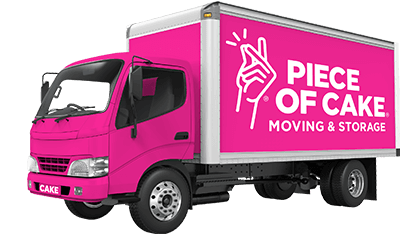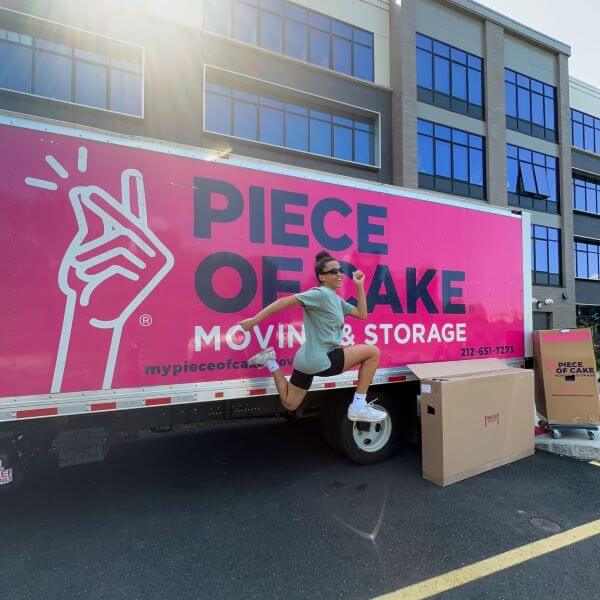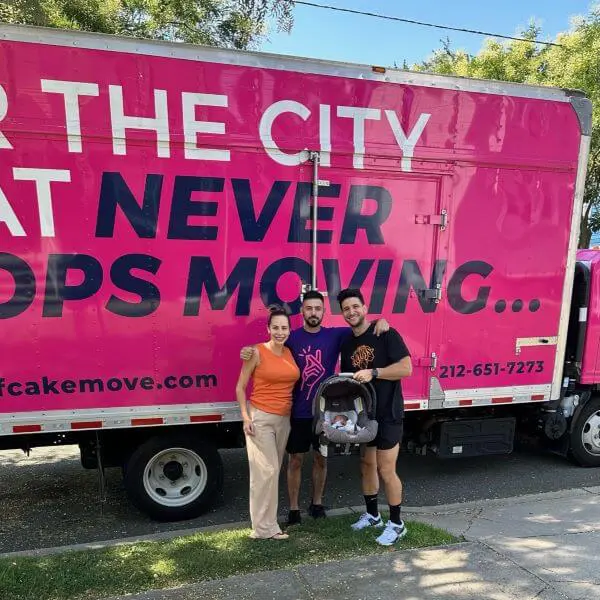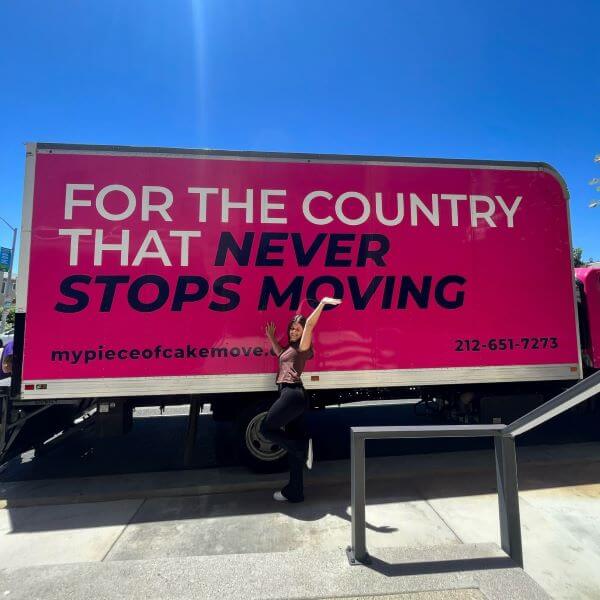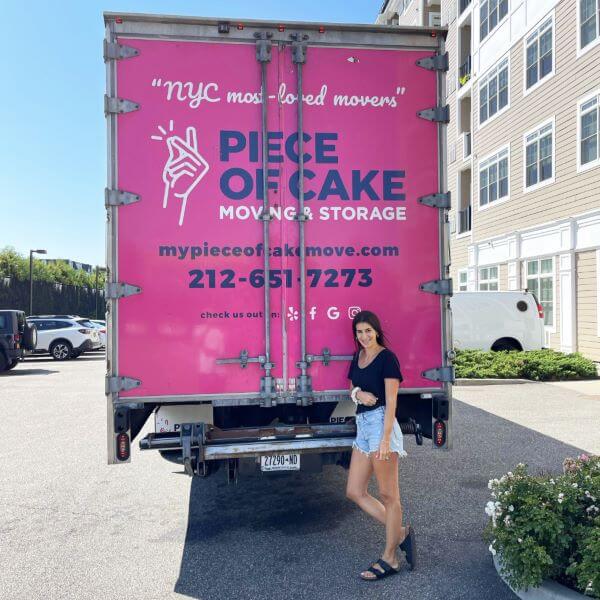Average Moving Cost in Connecticut: Factors that Affect Moving Prices
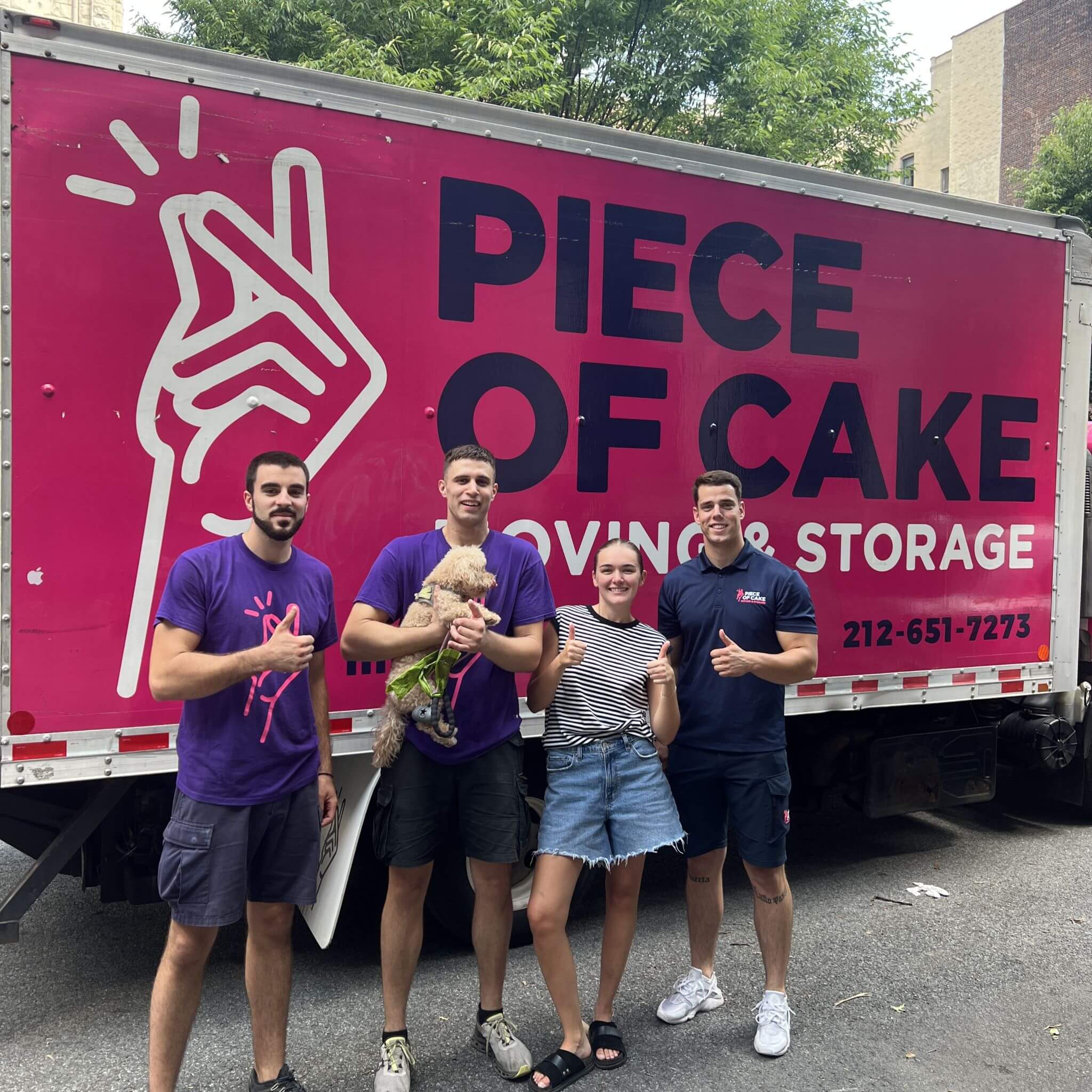
At Piece of Cake Moving & Storage, we’re here to simplify your move as the top-rated Connecticut movers with straightforward flat-fee pricing. Whether you’re settling into a charming home in New Haven or a coastal summer home in Greenwich, we’re ready to help you manage your Connecticut moving costs smoothly and confidently. Before you even begin packing, costs like packing materials and additional services can start to accumulate. If you’re also considering a more comprehensive option, like a full-service white-glove move, it’s especially important to get a clear handle on your budget early on.
Here’s what we’ll cover in this guide to help you accurately estimate your Connecticut moving costs:
Connecticut Moving Cost by Type
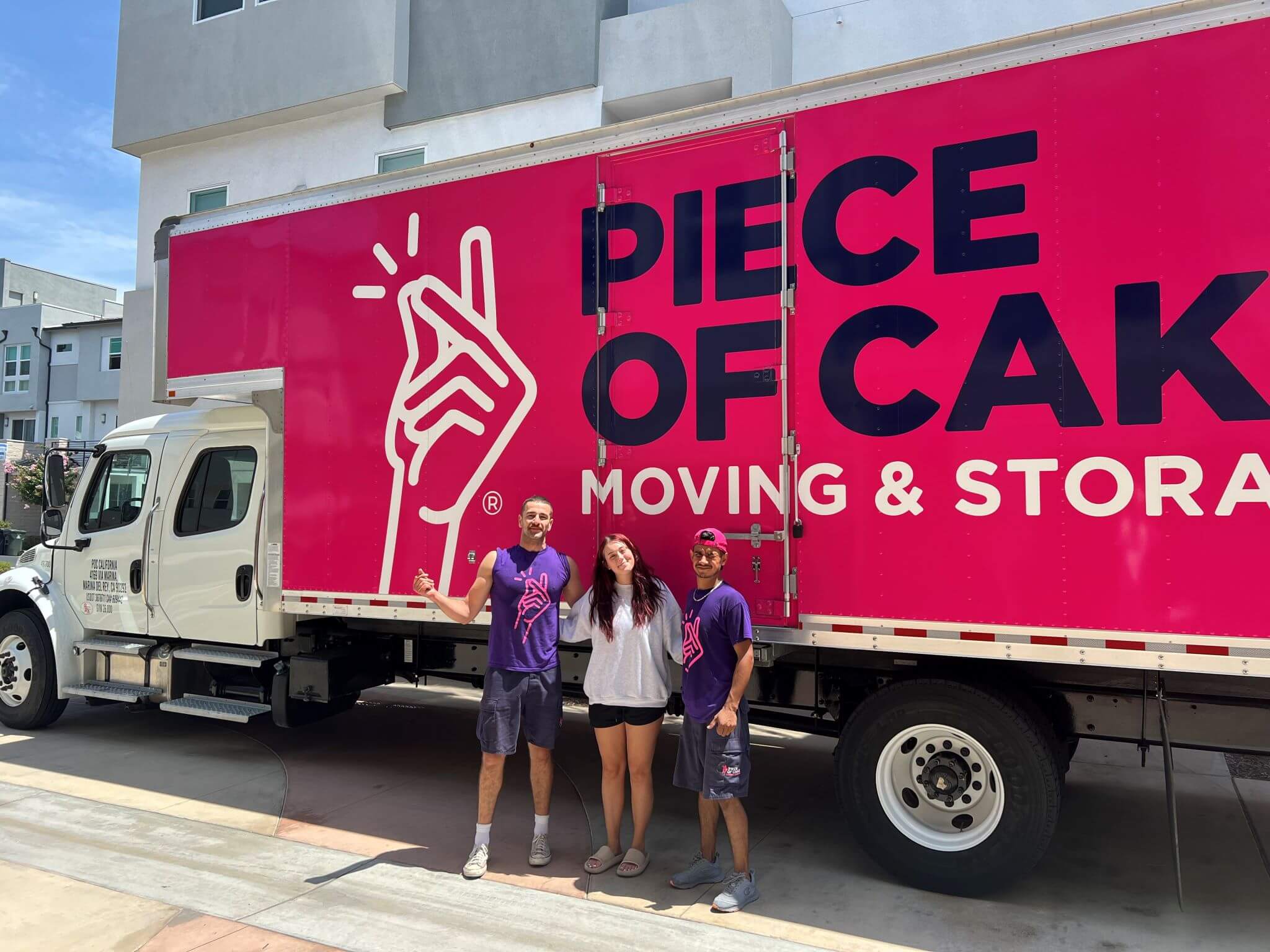
- Local Moves
- Long-distance Moves
- Specialty Items
Connecticut Local Moves
For local Connecticut moves, costs can change depending on the size of your home and other factors. Typically, local moves in Connecticut average around $1,000, but the cost can range from as low as $500 for a studio apartment and up to $1,900 for a large home.
Average 2024 Connecticut Local Moving Costs by Size
| Location | Size | Average Local Moving Cost |
|---|---|---|
| Connecticut | Studio | $500 |
| Connecticut | 1+ Bedroom | $800 |
| Connecticut | 2+ Bedroom | $1,100 |
| Connecticut | Large House | $1,900 |
Connecticut Long-distance Moves
Out-of-state moves from Connecticut to another state typically cost around $2,200, though the final cost depends on the distance between locations and volume of items. Factors like fuel prices, tolls, and expedited delivery services can also affect the total cost.
| Location | Move Type | Average Moving Cost |
|---|---|---|
| Connecticut | Out-of-State | $2,200 |
Specialty Items or Services
When you’re planning a move in Connecticut, don’t forget to give extra attention to those special items that require more than just quick disassembly and a box of packing peanuts. High-value items like artwork, antiques, or bulky items like gym equipment, pool tables, or pianos need proper packaging and special handling. Be sure to inform your Connecticut movers about any specialized items to get an accurate moving cost estimate. Some specialized items may require custom crating or even climate-controlled transportation.
For example, if you’re moving a hot tub, your Connecticut moving company will need to bring in a team with the right expertise and equipment. Professionals know how to safely handle bulky items and navigate tight spaces without causing damage to your home or the item itself. Then securing the item for transport requires skill and experience, which will be reflected in the moving cost.
If you’re considering extras like full-value insurance or a white-glove moving service, these options will add to your expenses, but the peace of mind they offer may be worth it, especially when you’re moving with a lot of luxury possessions and valuable items. Ultimately, it’s about balancing the services you need with the cost you’re comfortable paying to ensure your belongings are in good hands.
Connecticut Moving Cost by Size
- Studio or 1 Bedroom moves
- Multi-room moves
Connecticut Studio or 1 Bedroom Moves
In Connecticut’s real estate market, you can find cozy studio or one-bedroom condos in urban areas like Bridgeport to sprawling estates nestled in the suburbs of Fairfield County. When it comes to moving, smaller spaces have its perks since fewer belongings have lower moving costs.
| Location | Size | Average Local Connecticut Moving Cost |
|---|---|---|
| Connecticut | Studio | $500 |
| Connecticut | 1+ Bedroom | $800 |
Managing a Connecticut move for smaller apartments or studios typically requires two movers, with costs averaging around $500 for a studio move and $800 for a one-bedroom. But moves aren’t just about packing and unpacking—there are unique challenges handled by Connecticut movers like navigating the narrow streets of historic towns like Wethersfield or Mystic, or finding parking in busy areas like downtown Hartford or Stamford. These factors can add an extra layer of complexity.
Some buildings also have strict HOA regulations or require specific move-in/out times, which add to the planning and logistics of moving. In most luxury buildings, you’ll need to supply a certificate of insurance (COI) before reserving service elevators, which may have limited availability, especially during peak moving seasons. Always check with your building management for their requirements and ensure your Connecticut movers can provide the necessary COI paperwork. At Piece of Cake Moving, we take care of all your COI requirements at no extra cost, so you have one less thing to coordinate.
Connecticut Multi-room Moves
In Connecticut, larger homes often come with features like home offices, personal gyms, or spacious walk-in closets, all of which increase the cost of your move. Whether you’re upgrading to a bigger suburban house or downsizing to a cozier home, managing the logistics of moving and finding storage solutions if needed can be tricky, especially if you’re short on time.
| Location | Size | Average Local Connecticut Moving Cost |
|---|---|---|
| Connecticut | 2+ Bedroom | $1,100 |
| Connecticut | Large House | $1,900 |
For these larger moves, it’s common to need a team of 3 or more professional Connecticut movers. The complexity can also rise if your home is in a densely populated downtown or historic area. Factors that affect your moving cost include the layout of your home, whether you have elevator access or stairs, and any handling of specialty items.
When requesting quotes from Connecticut moving companies, be sure to provide detailed information on the amount of belongings you have and any specifics about your residence. Things like the time, day, and season of your move, along with extra services like packing or storage, will also influence your final Connecticut moving cost.
Connecticut Moving Cost Factors
- Packing supplies
- Housing application fees
- Lease terms
- Connections & utilities
- Your time & effort
- DIY move
Packing Supplies
In Connecticut, even moving from a studio apartment can cost $150-$200 just for quality packing materials to ensure your items are protected and secure, especially fragile items like glassware and dishes. For example, a typical three-shelf bookcase usually requires three medium-sized boxes—one for each shelf. Using simple calculations like this can help you better estimate just how many boxes you’ll need.
To save on packing supply costs, you can consider sourcing sturdy boxes from local stores or reusing boxes from neighbors. For a more eco-friendly and budget-friendly option, you can use plastic moving bin rentals. These bins typically cost between $50-$100 for a set of 20 for a week. They’re durable, waterproof, and stack neatly, making them a great choice if you want to cut down on box waste and go green. Just keep in mind that if you like to take your time unpacking, these bins are rented by the week, so costs can add up if you keep them longer than anticipated.
Housing Application Fees
In Connecticut, finding a rental can come with its fair share of challenges. Whether you’re considering a modern apartment in Norwalk or a historic home in Guilford, the rental process often includes non-refundable fees. You can expect to pay around $50 for credit checks and anywhere from $100 to $150 in application fees for some properties.
As you budget for your move, make sure to account for these upfront costs. They can add up faster than you expect and can throw off your moving budget if you’re not prepared.
Lease Terms
In Connecticut’s rental market, it’s important to carefully review your lease, particularly the notice period required if you’re planning to move out or not renew your lease. While a 30-day notice was once the norm, some leases now require 60 days’ notice, a shift that has become more common in recent years. Be mindful of any clauses that allow management to revoke concessions, like a rent discount, if you leave before your lease is up.
Having a clear understanding of your lease terms is essential to avoid unexpected fees and to ensure your move goes smoothly without any surprises that can put a strain on your budget.
Connections & Utilities
Making sure your utilities and services, especially Wi-Fi, are set up at your new place before moving day can save you time and make all the difference. Reach out to your service providers ahead of your move to arrange start and stop dates, and remember to update your billing address. It’s also a good idea to review your current plan for any potential upgrades or promotions—there might be a better subscription deal than what you’re paying now.
Keep in mind, some apartment buildings in Connecticut may have contracts with specific service providers, meaning you may need to switch from your current provider to another service provider like Frontier or Optimum. And if you’re the first tenant moving into a brand-new building or unit, you will likely have to schedule a technician to set up your service, which comes with its own one-time fees for installation and equipment.
Getting these details sorted ahead of time is a good idea to make sure you can settle into your new home from day one. Whether it’s kicking back with your favorite streaming show or listening to music on your smart home devices, having your services like home internet ready to go will help you feel right at home.
Your Time & Effort
Taking a day off or two for your move is a smart move. It allows you to oversee the whole process and make sure everything gets placed where you want it. If possible, try to schedule your move on a weekday. You’ll be able to save money and avoid the weekend rush when traffic is heavier, demand is higher, and moving rates tend to spike. If a weekday isn’t an option and you need to move on a Saturday, be ready for a busier day and higher moving costs. But sometimes the extra convenience of a weekend move is worth the added expense, and it gives you a little more time to unpack and settle into your new home before diving into the next week.
DIY Move
If you’re thinking about handling a DIY move in Connecticut, getting familiar with the ins and outs of rental trucks make all the difference in both cost and convenience. First, check if your rental includes free mileage for local trips, which can save you a chunk of change. You may also want to consider a one-way rental, which means you can return the rental truck at a location closer to your new place. This can save you valuable time, especially in areas of Connecticut known for heavy traffic.
Keep in mind, though, that the total cost of a rental truck can increase due to extra charges like fuel, tolls, additional mileage, or insurance. These costs can vary depending on the truck size, how long you need it, and the distance of your move.
Driving a big truck around Connecticut has its own set of challenges, too, particularly if you’re dealing with hilly terrains in Connecticut’s northwest corner, narrow roads, or tight parking spots. If you’re not comfortable handling a large vehicle, the drive could be more stress than you bargained for.
Planning is key for a DIY move. Be sure to map out your route to avoid traffic jams and busy areas. Weigh the savings against the time and effort of managing every detail of a DIY move. For longer and more complex moves, hiring professional Connecticut movers are often worth it for the ease and peace of mind.
If you’re leaning toward hiring Connecticut movers, we offer a smooth and seamless moving experience, so you can settle into your new home and relax. With our transparent flat-fee pricing and accurate moving cost quotes, you won’t be hit with any surprises—especially in Connecticut, where traffic delays can significantly impact time-based hourly moves.
Tips for Reducing Connecticut Moving Costs
- Declutter before moving
- Off-peak moving times
- Gather free packing materials
Declutter Before Moving
Take some time to go through your belongings and larger items, furniture, and appliances. Consider donating what you no longer need to local thrift shops or charities. If you have plenty of high-value items and the time to spare, you can also sell them on platforms like Facebook Marketplace, OfferUp, or Poshmark to add a little extra cash to your moving budget. The bottom line is simple: moving less items means lower moving costs.
Off-Peak Moving Times
When it comes to planning your move, timing can make a big difference. If you have some flexibility, think about scheduling your move for a midweek day like Tuesday or Wednesday. Moving on weekends or at the end or beginning of the month tends to be more expensive because that’s when most people are booking Connecticut movers. Opting for a weekday can save you money and increase your chances of locking in your preferred moving time. Plus, you’ll avoid the heavier weekend traffic that can slow things down.
Gather Free Packing Materials
Instead of buying moving boxes, consider checking for free recycled supply boxes from local stores like grocery shops, bookstores, bookstores, or retailers. You can also check community forums or apps like Nextdoor to find free boxes from nearby neighbors, which not only helps your budget but is also a win for the environment.
As you plan your Connecticut moving costs for 2024 and beyond, remember to factor in all these various expenses. Whether you’re moving into a stylish apartment in Milford or a spacious home in West Hartford, having a clear understanding of your Connecticut moving costs is key. The overall cost will largely depend on the size of your move, the distance, the timing, and any special moving requirements you have.
Ready to plan your move? Reach out to Piece of Cake Moving & Storage for a tailored instant quote to start budgeting for your Connecticut moving costs.
As trusted and reliable Connecticut movers, we’re here to make your move smooth and easy, like a piece of cake!
Ready to make a move? Get in touch today for an obligation-free guaranteed flat price moving quote.
Related articles

Average Moving Cost in Connecticut: Factors that Affect Moving Prices
Learn More

9 Tips for Moving to a Building with no Elevator
Learn More
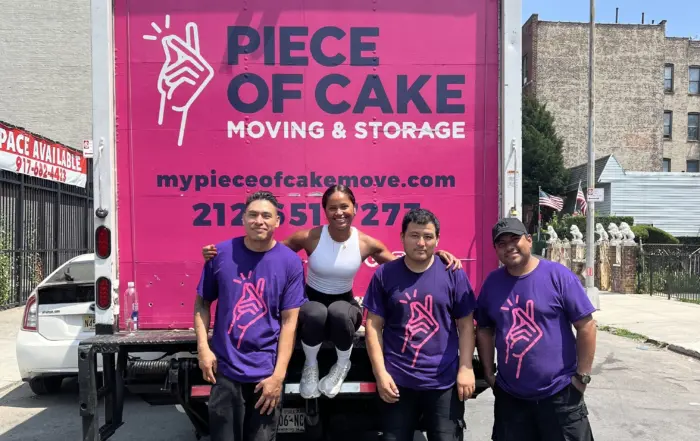
How to Get Rid of a Couch in 8 Easy Ways
Learn More
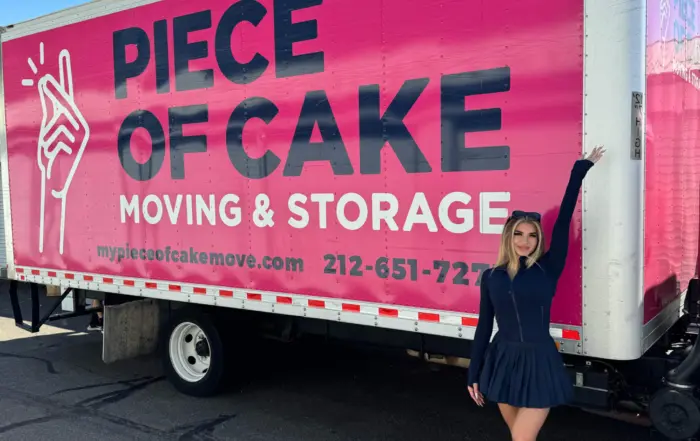
Average Moving Costs in NJ: Factors that Affect Moving Prices
Learn More
